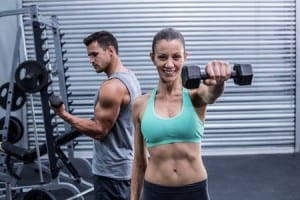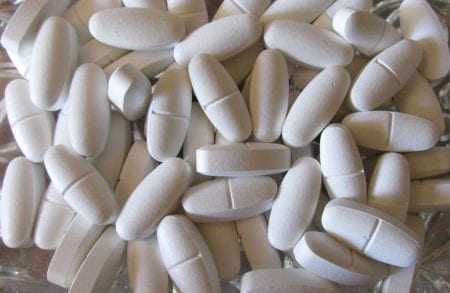 Image credit: Wavebreak Media Ltd
Image credit: Wavebreak Media Ltd
Are you worried about the fortress of bones and want to minimize the risk of fractures? Then buy a subscription to the gym! New research shows that vitamin supplements (even with the maximum amount of calcium and a healthy dose of vitamin D for better digestion), most likely, can not prevent the age-related decrease in bone density. But sports can – and this is great news.
What is wrong with calcium in supplements
Alex Krist, a leading USPSTF specialist, noted in a recent interview with JAMA that every year adults and elderly people receive about two million fractures, including hip fractures that significantly reduce motor activity and even reduce it to nothing. He adds that “more than half of them then need help in their daily activities, and 20-30% die within a year after the fracture.” That’s why with age, it’s so important to pay as much attention to strengthening bones. And that’s why it is equally important to understand what means really work here, and which ones only pretend.
New case studies, writes Popular Science, show that although calcium and vitamin D supplements do indeed have a positive effect, they are ineffective in low doses. As for higher dosages, at the moment scientists do not have enough evidence to say that this can and should be done. For example, the reason that excessive calcium intake probably increases the risk of kidney stones. Plus, experiments show that large doses of calcium in supplements can lead to an increase in its quantity within the arteries and, as a consequence, increase the risk of cardiovascular diseases.
Calcium or sports – who is cooler?
Numerous studies on calcium and bones eventually showed that there may be at least one thing that works better than calcium – physical activity. Despite the fact that the sample was not so large, scientists managed to prove that sport as part of a lifestyle reduces the risk of fractures, even for those who fall quite often.

Image credit: Buntysmum
In an accompanying article to the recommendations proposed by the USPSTF, the Los Angeles geriatrician David Reuben notes that the problem with additives may also be that people do not accept them with sufficient regularity. He points to the research data, noting that in one of the key experiments, if you look only at people who took at least 80% of the supplements, there was a reduction in hip fractures by a decent 29%.
Which of the following is the conclusion? If you are not at high risk of osteoporosis, do not worry about vitamins. All scientific evidence suggests that they are unlikely to get any benefit unless you have a diagnosis of a deficiency of a vitamin. But with an excess, as is clear from the above, there is a risk of encountering an additional set of problems. At the same time, exercise, it will not be easy yoga, dancing or exercise machines, in any case will benefit. And, not only for bones, but also for mood and health in general.
